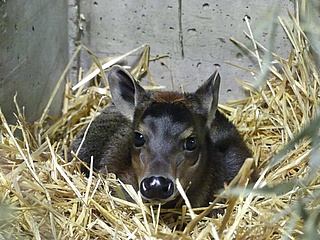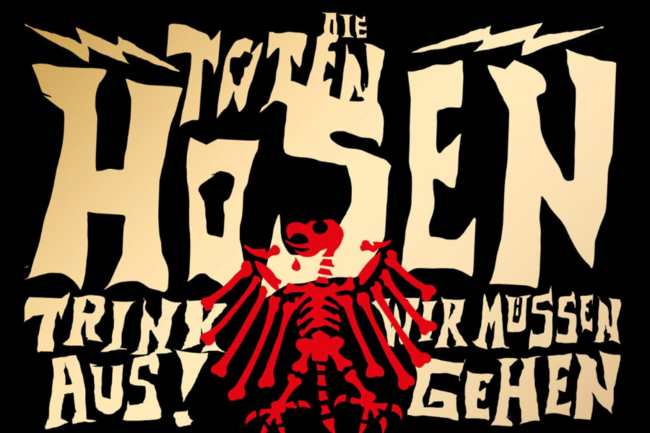After 54 years, Frankfurt Zoo has once again had a successful offspring of yellow-backed duikers. A healthy cub was born at the end of March. However, this is not the only reason why the zoo plays an important role in breeding and keeping this species, which is rarely seen in zoos: the European breeding program has also been coordinated in Frankfurt since 2022.
The zoo team had been waiting a long time for this, with their fingers crossed: On March 29, eight-year-old female yellow-backed duiker Dolly gave birth to her offspring. The cub's father is nine-year-old bull Walter. This is the first successful offspring for the two duikers, who came to Frankfurt from American zoos.
The EAZA Ex situ Program (EEP) for yellow-backed duikers was introduced in November 2022. Since then, it has been coordinated at Frankfurt Zoo. There are currently only four breeding pairs of this species in European zoos. The aim of active management is to advance research into husbandry and breeding and to build up a stable population in the long term. The experience gained can also be used to support ex-situ breeding efforts in the countries of origin of the yellow-backed duiker.
"I am very pleased about the extraordinary offspring and also about the fact that the European breeding program for the yellow-backed duiker is being coordinated at Frankfurt Zoo. The zoo population of this potentially endangered species will be managed here. The decision of the European Zoo Association to transfer responsibility for the breeding program to our curator Dr. Sabrina Linn clearly shows the trust that is placed in the scientists at Frankfurt Zoo by the experts", says Ina Hartwig, Head of the Department of Culture and Science.
"Research into the duiker is of particular importance, as very little is known about the animals. Although yellow-backed duikers have a long tradition in European zoos, especially in Frankfurt, keeping and breeding efforts have unfortunately not been particularly successful to date. It has therefore not yet been possible to build up a stable population. The reasons for this are not entirely clear. One of the main aims of the EEP is therefore to carry out research in these areas and gather experience in order to change this situation," says zoo director Christina Geiger.
"A constant exchange between the few zoos that keep yellow-backed duikers, as well as a motivated and committed team of animal keepers on site, is also important for the research. In terms of species conservation, it is very pleasing that we can now reap the first fruits of our work together," explains zoo curator and EEP coordinator Sabrina Linn. "After more than 20 years without any significant yellow-backed duiker offspring in Europe, this is now the third in just over a year, starting with the female juvenile Mtoto, who was born last year in March at Nuremberg Zoo and is now also living at Frankfurt Zoo, and the two juveniles born this year in March at Beauval Zoo in France and at our zoo."
Yellow-backed duikers, Cephalophus silvicultor, are originally found in West and Central Africa and live primarily in the humid forests of the lowlands. According to the Red List of the International Union for Conservation of Nature (IUCN), the shy duiker is considered potentially endangered. Due to the man-made reduction of their habitat and unregulated hunting, populations are continuing to decline. The knowledge gained about the duiker at the zoo is intended to help protect the species in the wild. And this is urgently needed, because the relatives of the yellow-backed duiker, such as the Abbott's and Jentink's duiker, are no longer just potentially endangered, but already acutely threatened.












